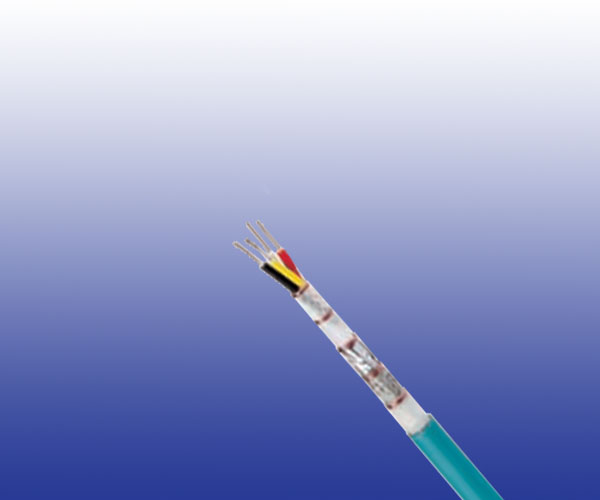MVB (Multifunction Vehicle Bus) Cables
Application
The cables are designed for transmission of digital signals under baud rate of 10M inside of rolling stock to connect fi xed parts. The communication system in a locomotive uses a wire backed bus system to the TCN standard for control and instrumentation and for diagnostics. This bus system consists of the rail bus WTB (Wired Train Bus) and the road bus MVB (Multifunction Vehicle Bus) which are connected via redundant gateways.
Standard
- DIN 5510-2
Cable Construction
 |
 |
| Conductor | Stranded tinned copper conductor according to IEC 60228 class 5 |
| Insulation | Foam skin-composite PE made of inner cellular layer and outer solid skin |
| Core Wrapping | Plastic tape(s) |
| EMC Screen | Tinned copper braid |
| Outer Sheath | Cross-linked oil resistant LSZH compound |
Electrical Characteristics at 20℃
| Nominal Cross Section | mm^2 | 0.5 |
| Maximum Conductor Resistance | Ω/km | 41 |
| Impedance@0.5-2MHz | Ω | 120+/-12 |
| Maximum Attenuation @1MHz | dB/km | 12.5 |
| Maximum Attenuation @1.5MHz | dB/km | 15 |
| Maximum Attenuation @2MHz | dB/km | 18 |
| Maximum Attenuation @3MHz | dB/km | 21 |
| Maximum Transfer Impedance | mΩ/m | 20 |
| Nominal Voltage Rating | V | 300 |
Mechanical and Thermal Properties
- Minimum Bending Radius: 5×OD (single); 10×OD (multiple)
- Temperature Range: -40℃ to +90℃ (during operation); -20℃ +50℃ (during installation)
Dimensions and Weight
| Cable Code | No. of cores& Nominal Conductor Cross Sectional Area No.×mm^2 |
Nominal Diameter of Strands No/mm |
Nominal Sheath Thickness mm |
Nominal Overall Diameter mm |
Nominal Weight kg/km |
|---|---|---|---|---|---|
| RD-MVB-02YSCH-1P0.5S+1C0.5S | 1×2×0.5+1×0.5 | 19/0.18 | 1.2 | 6.8 | 62 |
| RD-MVB-02YSCH-2P0.5S | 2×2×0.5 | 19/0.18 | 1.2 | 8.3 | 100 |

